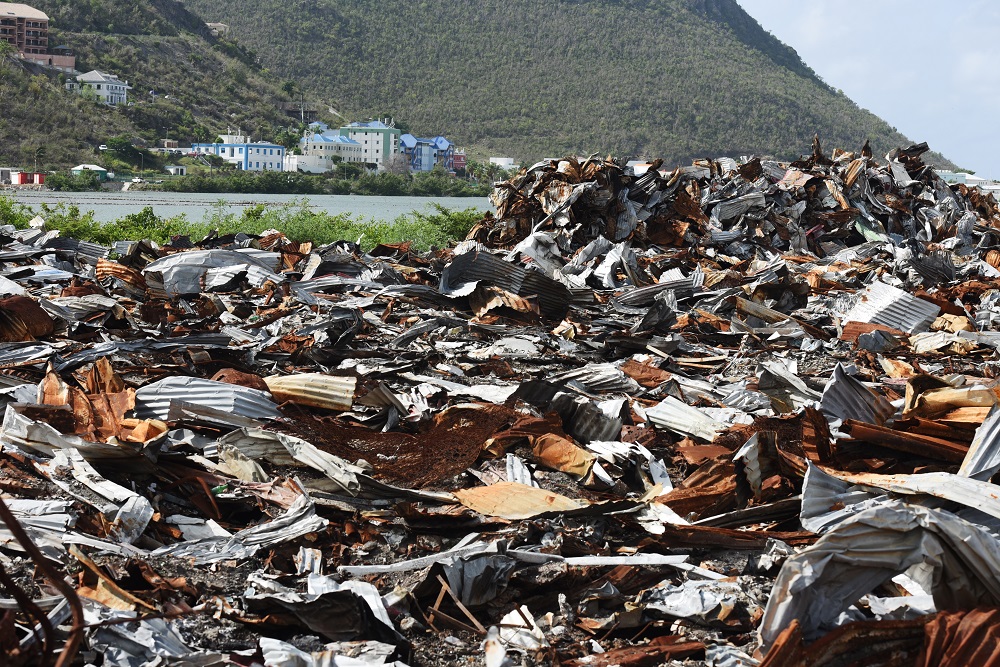Focus shifts from energy to waste

PHILIPSBURG — A waste to energy facility is no longer the first option for dealing with the island’s garbage issues. The focus has shifted from producing energy to getting rid of waste. This became clear from a presentation by Claudius Buncamper, the head of infrastructure management at the VROMI-ministry at the Inter-Parliamentary Kingdom Consultation on Wednesday. Taking a decision about how the government wants to solve its garbage issues could take up to three years, Buncamper said.
It is more than likely that the government will take steps to impose levies on garbage collection and on waste water processing. Up to now, citizens do not have to pay a penny for these services.
Currently the government spends around 11 million guilders per year on garbage collection, landfill management and waste water processing. The levies could bring in around 16 million guilders each year, Buncamper said, stressing that these charges must remain affordable for citizens.
It doesn’t look like the current issues with the fires on the dump will be solved on short notice. There is not enough fill (sand to cover the dump) to prevent these fires. According to Buncamper the dump requires 6,000 ton of fill per month. At $40 per ton the government simply cannot afford this; it would add up to 2,880,000 guilders per year.
The department of infrastructure has in the meantime taken over the management of the landfill from contractor Robelto.
Currently sorting of garbage is no possible and neither is recycling, but that should change in the distant future. Buncamper envisions recycling levels of 50 to 60 percent and what he called “maximum sorting.” Yet part of the government’s vision is to export part of the waste for recycling.
Exporting garbage is not feasible because the shipping costs are prohibitive. The government has signed a grant agreement for $25 million with the World Bank to tackle the dump-issues. Part of the plan is to relocate fifteen homes that are in the so-called red zone – the closest to the dump where residents experience the most serious problems once another fire breaks out.
Another part of the plan is to ship car wrecks to the Netherlands and to tackle the fires. This process, at a cost of $6 million (close to 10.75 million guilders) involves excavation to expose the fires. Expertise and specialized equipment have to be brought in because they are not available locally.
Buncamper said that this process would cause “significant nuisance” due to smoke and emissions from the fires. Before, during and after the operation air quality will be monitored. It could take anywhere from five weeks to five months to complete the whole process.
Short term solutions for the dump include tendering interim management. The government will buy equipment like a compactor and a bulldozer.
Buncamper also made clear that it is close to impossible to prevent French-side garbage from ending up on the dump. The French side charges waste collectors for dumping, but on the Dutch side there is no charge. When trucks arrive with a Dutch-side number plate no questions are asked. According to Buncamper Dutch-side trucks collect garbage from the French side to dump it on the landfill.
###
Top photo caption: Thousands of sheets of galvanized zinc lies twisted and charred from numerous fires at the dumping grounds on Pond Island. (D.A. Robin/Photojournalist).


























